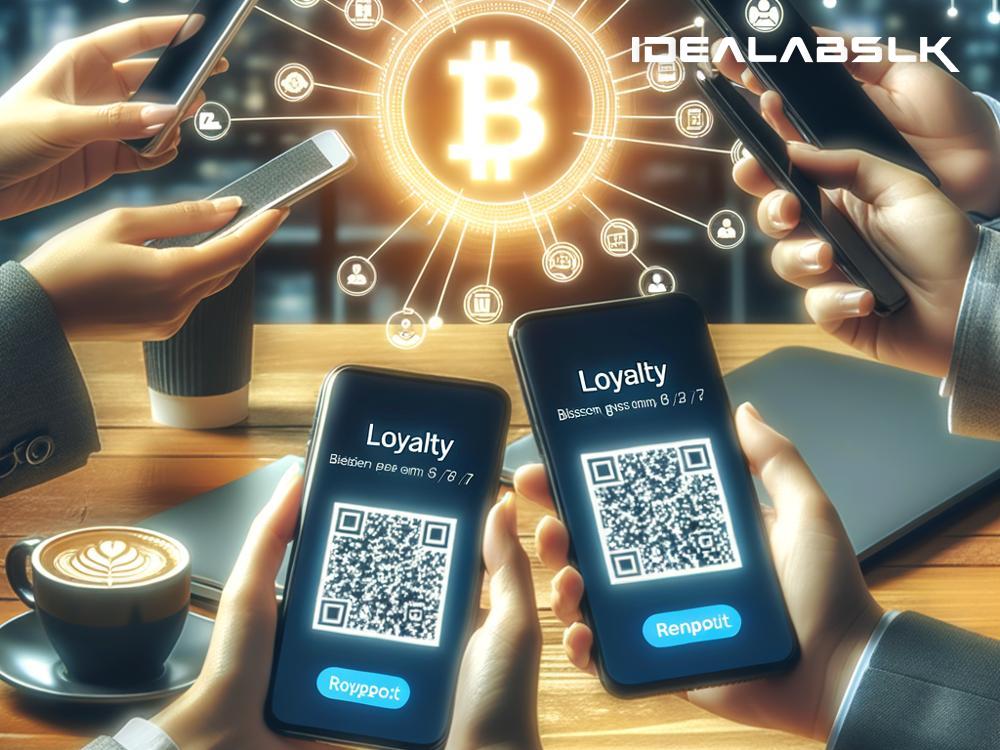How Blockchain Will Transform Future Loyalty Programs
We've all been there, sifting through a wallet crammed with loyalty cards or trying to remember login details for various loyalty program apps. It's a crowded, confusing world out there, and it gets even more so when you're trying to maximize the benefits from loyalty programs. But what if there was a technology that could streamline this jumbled mess into something coherent, secure, and incredibly user-friendly? Enter Blockchain, the same tech that powers cryptocurrencies like Bitcoin. It's poised to dramatically reshape how businesses and consumers interact with loyalty programs.
Simplifying the Complex
At its heart, Blockchain is a type of database. However, it's not just any database. It's decentralized, meaning it's not stored in just one location but spread across several locations or even across the world. This makes it incredibly secure and almost impossible to hack. Now, imagine this technology applied to loyalty programs. It could mean the end of all those forgotten passwords and lost loyalty cards. Everything related to your loyalty rewards could be stored securely on a blockchain, accessible through a single app or digital wallet.
The Future of Loyalty: Personalized and Seamless
One of the most exciting prospects of blockchain-based loyalty programs is how they can be personalized. Today, loyalty rewards are somewhat of a one-size-fits-all affair, with little customization to what you actually like or need. Blockchain's smart contracts – self-executing contracts with the terms directly written into code – can change that. They can be programmed to tailor rewards to individual preferences, creating a much more personal and engaging experience. Imagine earning points that can dynamically adjust based on your favorite products or being rewarded for social media engagement specific to your interests. This is the promise of blockchain.
Moreover, blockchain can bring together various loyalty programs under a single umbrella. Today, your coffee shop, airline, and retail rewards are siloed, with few opportunities to transfer or combine points. Blockchain can enable a unified ecosystem where points from different programs can be easily exchanged or combined, making rewards more flexible and valuable.
Speed and Transparency in Transactions
One of the biggest pain points in current loyalty programs is the delay in processing rewards. It can take days, if not weeks, for points to appear in your account. Blockchain can slash these waiting times significantly, providing real-time updates to your rewards balance. This immediate feedback can enhance the shopping experience, making loyalty rewards feel more integral to purchases rather than an afterthought.
Transparency is another cornerstone of blockchain technology. With blockchain, you could track the lifecycle of your loyalty points in real time – how they're earned, where they can be spent, and when they expire. This level of clarity could foster greater trust between consumers and companies, as well as encourage more active and enthusiastic participation in loyalty programs.
Enhancing Security and Reducing Fraud
Blockchain's decentralized nature makes it a tough nut to crack for fraudsters. This robust security could drastically reduce instances of loyalty program fraud, such as points theft or account tampering. For customers, this means peace of mind knowing their hard-earned rewards are safe. For businesses, it can lead to significant savings by cutting down on fraud-related losses and bolstering the overall integrity of their loyalty program.
Challenges and Considerations
While the potential of blockchain in transforming loyalty programs is vast, there are hurdles to overcome. The primary challenge is technology adoption. Businesses must be willing to invest in and adopt blockchain technology at a large scale. There's also the issue of regulation and ensuring that these loyalty programs comply with local laws and regulations, especially those regarding data privacy.
Moreover, there's the learning curve for customers who may be unfamiliar with blockchain. Educating consumers on how to manage their digital wallets and understand the value of their blockchain-based rewards will be crucial for widespread adoption.
In Conclusion
Blockchain technology holds the promise of a future where loyalty programs are more secure, efficient, and tailored to individual preferences. While there are challenges to navigate, the potential benefits for both businesses and consumers are too significant to ignore. As technology continues to evolve, we can look forward to a day when our loyalty rewards are as fluid and dynamic as our shopping habits, thanks to the transformative power of blockchain.
In this emerging landscape, the loyalty card clutter in our wallets and the forgotten passwords for online accounts could become artifacts of the past, replaced by a seamless, engaging, and highly secure system that rewards us in real-time for our loyalty and engagement. The future of loyalty programs, powered by blockchain, is indeed a bright and promising one.

